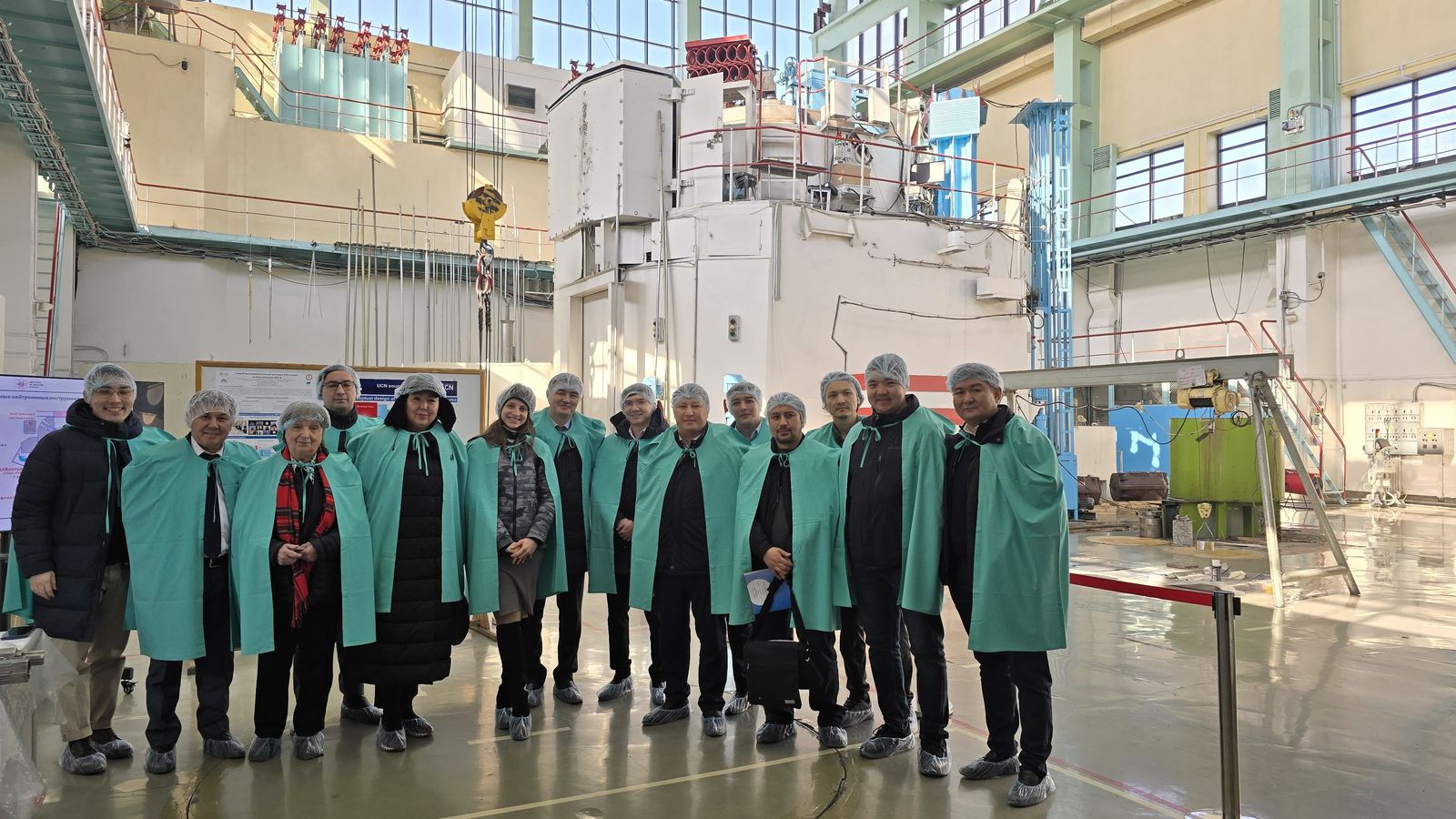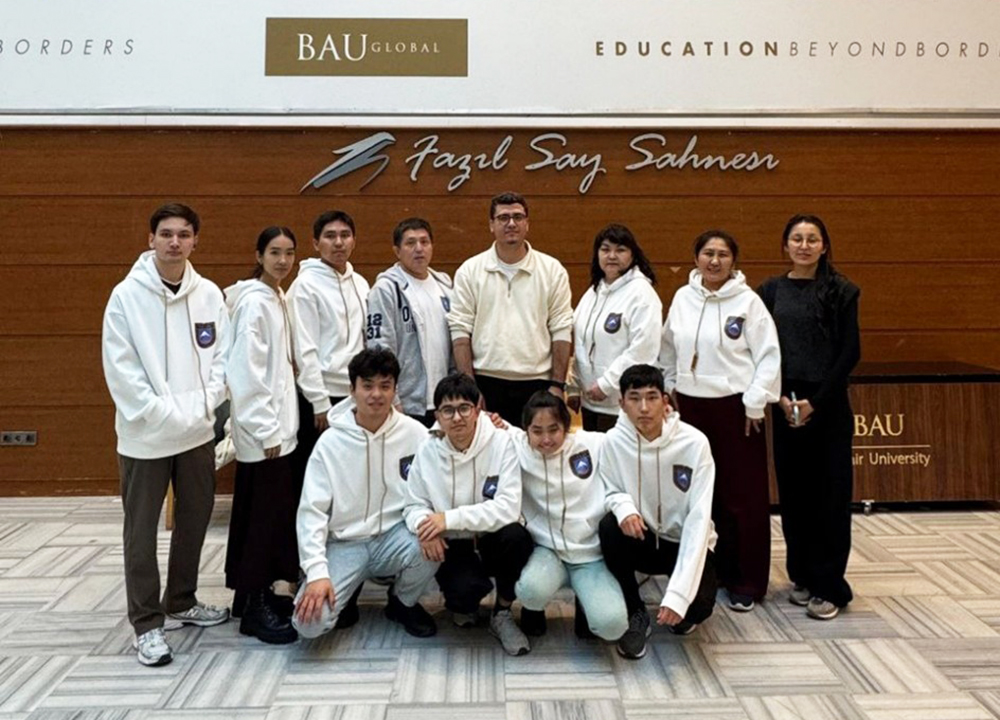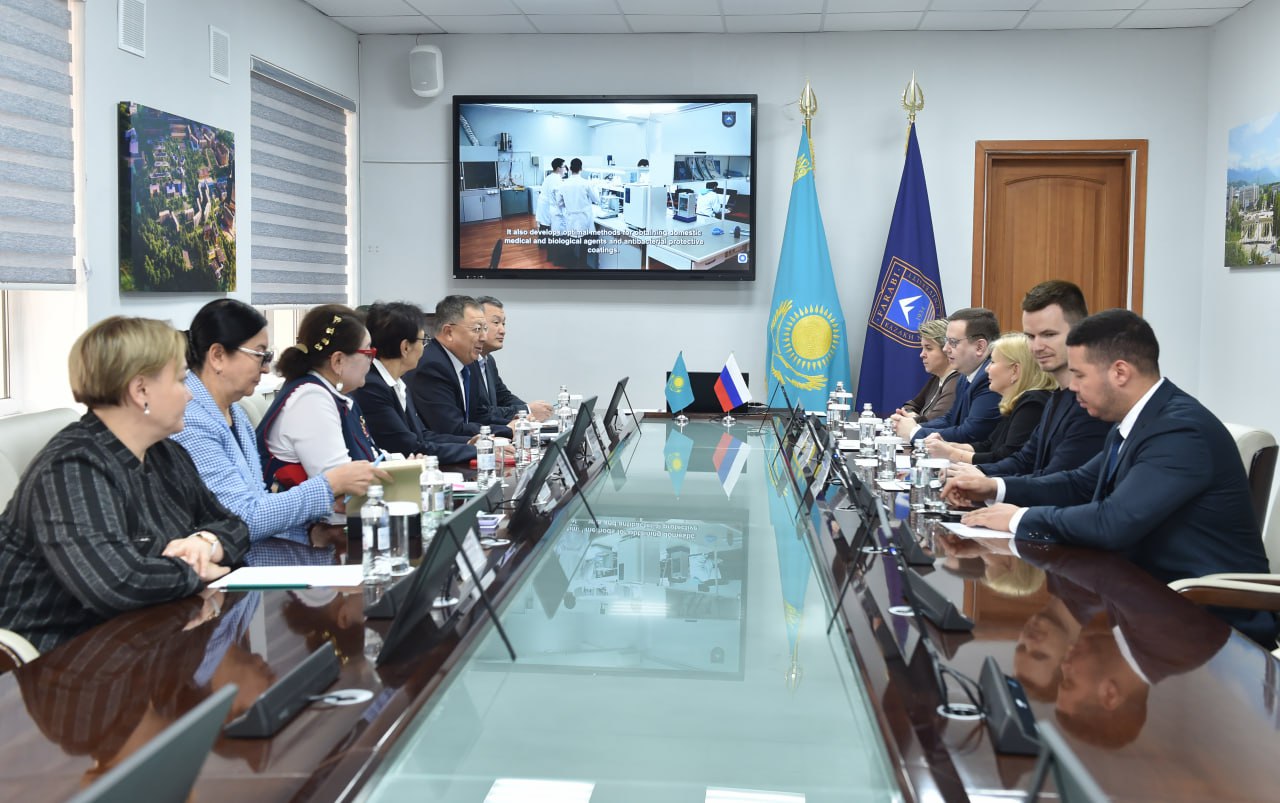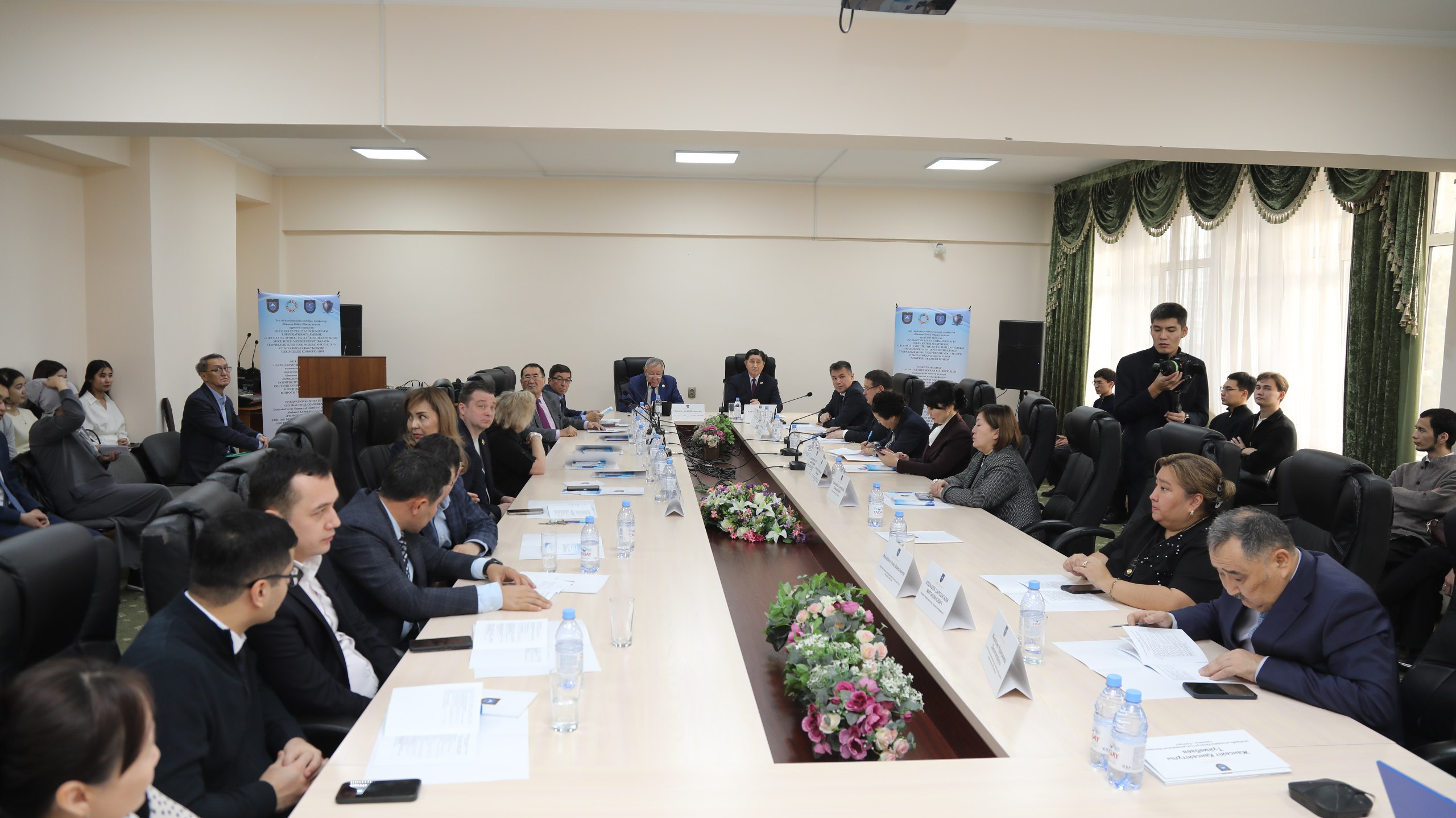- Басты бет
- Жаңалықтар
- KazNU Faculty of Physics and Technology Delegation Visits IAE to Establish Collaboration with the Laue-Langevin Institute (ILL). SDG 4, SDG 9, and SDG 17
KazNU Faculty of Physics and Technology Delegation Visits IAE to Establish Collaboration with the Laue-Langevin Institute (ILL). SDG 4, SDG 9, and SDG 17

On February 24, 2024, the Institute of Nuclear Physics (INP) in Almaty hosted a hybrid seminar (online/offline) dedicated to Kazakhstan's potential accession to the Laue-Langevin Institute (ILL) in Grenoble, France. The event gathered representatives from Al-Farabi Kazakh National University (KazNU) as well as leading universities and research institutes of Kazakhstan.
Participants from KazNU’s Faculty of Physics and Technology:
• N.A. Beisen – Dean of the Faculty,
• S.L. Peshaya – Deputy Dean for Research and International Relations,
• B.A. Khaniev – Director of NIIPT,
• M.M. Muratov – Director of NIIPT.
ILL – A World-Leading Center for Neutron Research
The Laue-Langevin Institute (ILL), located in Grenoble, France, is a global leader in neutron research. Founded in 1967, ILL has become a hub for European scientific collaboration, bringing together scientists from France, Germany, the UK, Switzerland, Italy, and other countries.
ILL operates one of the world’s most powerful neutron sources, enabling fundamental and applied research in:
✅ Condensed matter physics,
✅ Nuclear physics,
✅ Chemistry and materials science,
✅ Biology and medicine,
✅ Information technology.
Each year, about 1,400 scientists from 40 countries conduct over 1,000 experiments using ILL’s 43 advanced research facilities.
Prospects for Collaboration Between Kazakhstan and ILL
During the seminar, Professor V.V. Nesvizhevsky, a senior scientific researcher at ILL, presented an overview of the institute’s operations and Kazakhstan’s potential participation. Discussions focused on Kazakhstan's initiative to join ILL as a scientific member.
Key areas of collaboration:
• Access for Kazakhstani scientists to ILL experiments for 0.3% of neutron source time from 2026 to 2030;
• Joint research in materials science, chemistry, biology, and nuclear medicine;
• Training of highly qualified specialists in neutron research;
• Development of a new research reactor in Kazakhstan with ILL expertise.
Kazakhstani researchers would receive the same rights as scientists from ILL’s founding countries, allowing them to submit experiment proposals and engage in international collaborations.
Alignment with the Sustainable Development Goals (SDGs)
Kazakhstan’s collaboration with ILL contributes to several United Nations Sustainable Development Goals (SDGs):
• SDG 4: Quality Education – fostering international scientific connections, training young researchers, and integrating Kazakhstan into the global research ecosystem.
• SDG 9: Industry, Innovation, and Infrastructure – leveraging advanced neutron technologies to develop new materials, nuclear medicine, and industrial applications.
• SDG 17: Partnerships for the Goals – expanding international scientific cooperation and enhancing Kazakhstan’s involvement in global research initiatives.
Outcomes and Next Steps
Following the seminar, the KazNU Faculty of Physics and Technology delegation and other participants visited the VVR-K research reactor, where they discussed the potential for implementing advanced neutron methodologies in Kazakhstan.
Both sides expressed mutual interest in collaboration and agreed to further explore the details of Kazakhstan's participation in the Laue-Langevin Institute.
Басқа жаңалықтар


